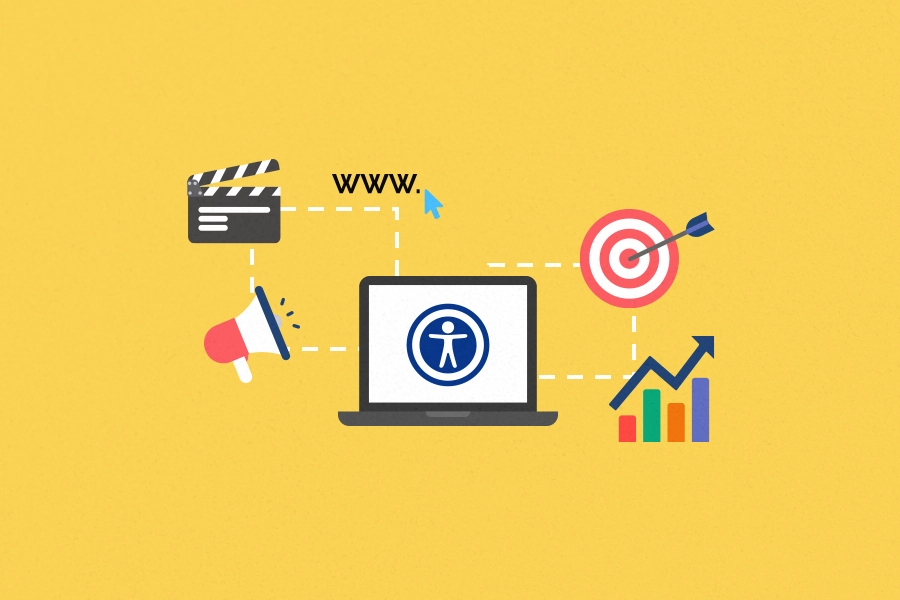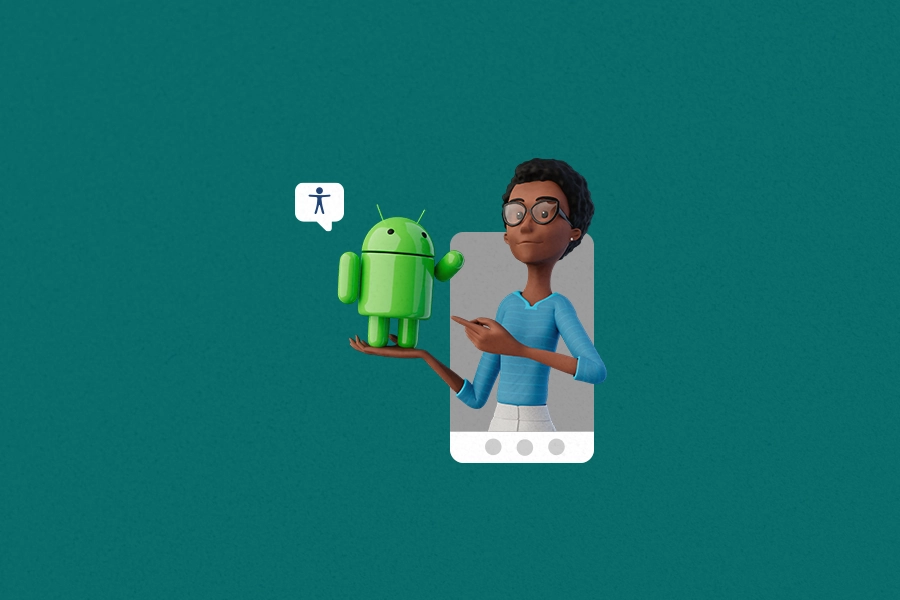
Check out 5 tips on how to sell to people with disabilities!

Selling to people with disabilities is not just an inclusive practice but also a smart approach for any business. After all, there are 61 million inhabitants with disabilities in America alone. If we think on a global scale, the population with disabilities has a disposable income of $8 trillion. That is a significant financial movement for you not to pay attention to, right?
Customer diversity is a reality, and adapting sales strategies to meet the specific needs of this audience is crucial. So, join us to explore fundamental tips on how to ensure a positive and inclusive experience when selling to people with disabilities. Let’s go!
Why adapt your business to people with disabilities?
Before diving into practical tips, it is essential to understand the importance of adapting your business to serve people with disabilities. Besides being an ethical matter, inclusion is a smart business strategy.
In the US, people with disabilities represent approximately 27% of our population and, therefore, are a market with enormous profit potential. Consider that not only can people with disabilities themselves become your consumers if your business is accessible, but also their entire social and family circle. For example, a person in a wheelchair goes out to dinner with their family. If the restaurant cannot accommodate them, it will miss the opportunity to sell to both the person with a disability and all their accompanying family members.
Moreover, meeting the needs of these consumers creates a positive reputation for the brand, contributing to customer loyalty.
5 tips on how to sell to people with disabilities
Without further ado, here are 5 initial tips for you to serve different people with disabilities who come across your business effectively. Check it out:
1. Digital accessibility
Having a website with digital accessibility is essential! With the world increasingly turning to online interactions, this can be a significant differentiator, especially in a scenario where only 2% of American websites are accessible.
Make sure you are following web accessibility guidelines, also known as WCAG. This includes, for example, the use of alternative descriptions for images, legible fonts, and simplified navigation.
2. Team training
It is crucial to empower your team to handle customers with disabilities inclusively. Provide training covering effective communication and inclusive language, empathy, and knowledge about the specific needs of each disability.
To start, for example, you can ensure that at least one person on your team can communicate in American Sign Language (ASL). This is the first language of a significant portion of the deaf community in America and is crucial for barrier-free communication.
3. Adaptations in the physical environment
If you have a physical store, ensure that the environment is accessible to people with mobility disabilities, such as those using wheelchairs. Ramps, elevators, automatic doors, adapted bathrooms, and a good arrangement of furniture are essential to ensure inclusion.
Moreover, these adaptations are often very useful for the convenience of many people in their daily lives. Imagine someone pushing a stroller; going up a ramp instead of stairs is much more practical, is it not?
4. Visual and auditory communication
Use both visual and auditory resources in your communication strategies. This way, you can work with communication with the minimum possible accessibility barriers.
This can include videos with subtitles and ASL interpreters, printed materials in legible fonts and with good contrast, as well as sound and light announcements to highlight important information.
5. Accessible payment options
Offer payment options that are accessible to everyone. This can include contactless payment, for example, which facilitates the action for people with motor disabilities.
What are the main needs of the client with a disability?
There is no one-size-fits-all answer to this question. Each person has different needs, whether due to a disability or a specific situation, such as carrying several bags and not being able to open a door so easily.
Regardless of the case, here are some of the main assistive needs of people with disabilities, check it out:
Blind people or those with visual disabilities
- Provide Braille versions of printed materials;
- Offer personalized assistance for navigation in the physical environment;
- Invest in screen reading technologies for your website.
Deaf people or those with hearing loss
- Have Sign Language interpreters on your team;
- Use videos with subtitles and transcriptions;
- Have visual signs to draw attention in physical stores.
People with motor disabilities or reduced mobility
- Ensure that the environment is accessible with ramps and elevators;
- Train the team to offer assistance when needed;
- Provide online shopping options to simplify the process.
People with color blindness
- Use high-contrast color combinations;
- Avoid relying solely on color codes;
- Offer color customization options in apps and websites.
People with intellectual disabilities
- Simplify the purchasing and navigation process on your website;
- Offer support to customers in a clear and accessible manner;
- Be flexible for personalized adaptations, when possible.
Conclusion
Adapting your business to serve people with disabilities not only expands your potential market but also promotes inclusive values. By implementing practices that consider the specific needs of each group, your company will not only be fulfilling an important social role but also building a positive reputation. Inclusion is a two-way street, where all people benefit, creating a fairer society and more successful businesses.
Do you want to start making your business more accessible and sell to customers with disabilities? Connect with an audience of millions and learn more about the Hand Talk Plugin, an assistive technology tool that automatically translates all content on your website, including text or images with alternative descriptions, into Sign Languages.


